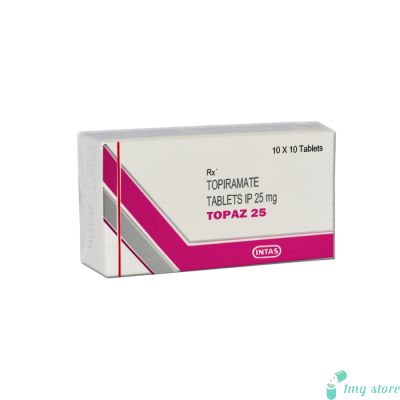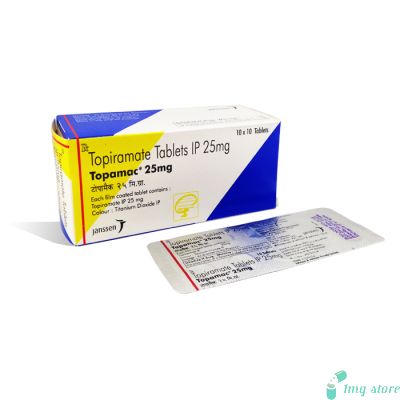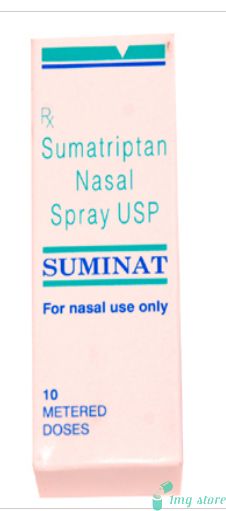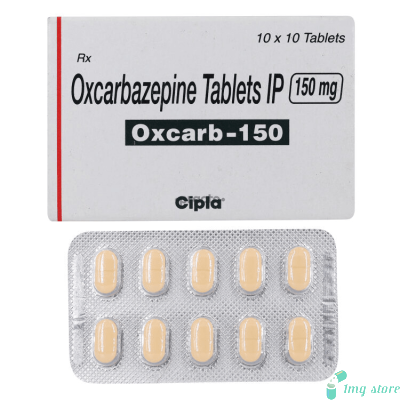Generic Topiramate (Topaheal Tablet)
Generic Topiramate (Topaheal Tablet), Topiramate, also known by the brand name Topaheal Tablet and Topamax, is a medication commonly prescribed for the treatment of epilepsy, specifically to control seizures. It is also utilized as a preventive measure for migraines.
Introducing Generic Topiramate (Topaheal Tablet) to Treat Various Medical Conditions
Topiramate, also known by its brand name Topamax, is a medication that belongs to the class of anticonvulsant drugs. It is primarily used to treat various medical conditions, including bipolar disorder, epilepsy, and migraines. It has shown potential in the treatment of Addiction and Alcohol dependence. While primarily used for epilepsy and migraines, topiramate has also been studied for its effectiveness in reducing alcohol cravings and promoting abstinence in individuals struggling with alcohol addiction. It is believed to work by affecting the neurotransmitters in the brain, which helps to decrease the pleasurable effects of alcohol and reduce the desire to consume it. Topiramate may be prescribed alongside other therapies as part of a comprehensive treatment plan to support individuals in their journey toward recovery from addiction and alcohol dependence. It is important to note that the use of topiramate for addiction and alcohol dependence should always be done under the supervision and guidance of a healthcare professional.
Topiramate for Bipolar Disorder:
Topiramate has gained recognition as an effective treatment option for bipolar disorder. Bipolar disorder is a mental health condition characterized by extreme mood swings, including episodes of mania and depression. Topiramate can be prescribed as a mood stabilizer to help regulate these mood fluctuations. It works by affecting certain neurotransmitters in the brain, helping to stabilize and balance the mood. Topiramate has shown promising results in reducing the frequency and severity of bipolar episodes when used as part of a comprehensive treatment plan.
Topiramate for Epilepsy:
Topiramate is widely prescribed as an antiepileptic medication to manage and prevent Seizures. Epilepsy is a neurological disorder characterized by recurrent seizures due to abnormal brain activity. Topiramate works by inhibiting certain channels in the brain, which helps to decrease the abnormal electrical activity that leads to seizures. It can be used as an adjunctive treatment in individuals with partial-onset seizures, as well as in the treatment of generalized tonic-clonic seizures. Topiramate has demonstrated efficacy in reducing seizure frequency and improving seizure control in many patients with epilepsy.
Topiramate tablets are available in different strengths, including topiramate 50 mg, 25mg, and 100mg. This dosage is commonly prescribed and can be adjusted based on individual needs and response to treatment. The dosage may vary depending on the medical condition being treated and the healthcare provider's recommendation. It is important to follow the prescribed dosage and any instructions provided by the healthcare professional.
Topiramate for Migraine:
Topiramate has also been approved for the prevention of migraines. Migraines are severe headaches often accompanied by other symptoms, such as nausea, sensitivity to light and sound, and visual disturbances. Topiramate's precise mechanism in migraine prevention is not fully understood, but it is believed to modulate the neurotransmitters involved in pain pathways and help reduce the frequency and severity of migraines. It can be prescribed as a preventive treatment to reduce the number of migraines experienced per month.
In conclusion, Topiramate, marketed as Topamax, is a versatile medication used for various medical conditions. Its effectiveness in managing bipolar disorder, epilepsy, and migraines has made it a valuable treatment option. The availability of topiramate 50 mg tablets allows for flexibility in dosing, while its use in migraine prevention showcases its broad therapeutic potential. However, it is crucial to consult with a healthcare professional for accurate diagnosis, appropriate dosing, and monitoring while using Topiramate.
Dosage:
The dosage of Topiramate (Topamax) can vary depending on the specific medical condition being treated and individual patient factors. It is important to follow the prescribed dosage and any instructions provided by your healthcare professional. Typically, the dosage is started at a low level and gradually increased to achieve the desired therapeutic effect.
Dosage For Bipolar Disorder:
The initial dosage of Topiramate for bipolar disorder is usually low, and it is gradually increased over time. The exact dosage can vary, but it commonly ranges from 25 to 200 mg per day, taken in divided doses. Your healthcare provider will determine the most appropriate dosage based on your individual needs and response to treatment.
Dosage For Epilepsy:
The dosage of Topiramate for epilepsy is also initiated at a low level and increased gradually. The recommended starting dose is usually 25 to 50 mg per day, and it is then adjusted based on the individual's response. The maintenance dosage typically ranges from 100 to 400 mg per day, divided into two doses or taken as a single dose.
Dosage For Migraine Prevention: When used for Migraine prevention, the typical starting dosage of Topiramate is 25 mg per day, which is gradually increased to a maintenance dose of 50 to 100 mg per day. In some cases, higher dosages may be prescribed, up to a maximum of 200 mg per day. The specific dosage will be determined by your healthcare professional based on your condition and response to treatment.
Topiramate offers several benefits for different medical conditions:
Bipolar Disorder: Topiramate can help stabilize mood swings associated with bipolar disorder, reducing the frequency and severity of manic and depressive episodes.
Epilepsy: By suppressing abnormal electrical activity in the brain, Topiramate helps prevent seizures and improves seizure control in individuals with epilepsy.
Migraine Prevention: Topiramate has been shown to reduce the frequency and severity of migraines, helping to prevent their onset and improve the overall quality of life for migraine sufferers.
How It Works:
As a Neurology Drug, The exact mechanism of action of Topiramate is not fully understood. However, it is believed to work through multiple mechanisms in the brain. Topiramate is thought to modulate the activity of various neurotransmitters, such as gamma-aminobutyric acid (GABA), glutamate, and dopamine. By influencing these neurotransmitters, it helps regulate brain activity and stabilize mood. It blocks sodium channels in the brain, which helps inhibit the abnormal electrical activity responsible for seizures. It is also believed that Topiramate enhances the activity of certain potassium channels, which helps stabilize neuronal activity and prevent excessive firing of neurons. Topiramate has carbonic anhydrase inhibitory properties, which may contribute to its antiepileptic effects. However, the exact role of this mechanism in its therapeutic action is not fully understood.
Precautions to be taken When using Topiramate (Topamax) as a Neurology drug
- Inform your healthcare professional about your complete medical history, especially if you have any pre-existing neurological conditions, liver or kidney problems, or a history of mood disorders. This information will help the healthcare provider determine if Topiramate is suitable for you and if any adjustments to the dosage or treatment plan are necessary.
- If you are pregnant, planning to become pregnant, or breastfeeding, discuss the potential risks and benefits of using Topiramate (Topamax) with your healthcare professional. Topiramate may pose a risk to the developing fetus and can be excreted in breast milk, potentially affecting the nursing infant.
- Topiramate has been associated with an increased risk of developing kidney stones. Stay adequately hydrated and maintain a healthy fluid intake while taking Topiramate to reduce the risk. If you experience symptoms such as severe abdominal pain, blood in urine, or changes in urinary patterns, seek medical attention promptly.
- Topiramate may cause cognitive side effects, such as difficulty with concentration, memory problems, and confusion. Exercise caution while engaging in activities that require mental alertness, such as driving or operating machinery until you know how Topiramate affects you individually.
- Topiramate use has been associated with mood changes, including depression, anxiety, and irritability. Report any significant changes in mood or behavior to your healthcare professional for evaluation and appropriate management.
- Topiramate may increase the risk of angle-closure glaucoma, a condition characterized by increased pressure in the eyes. If you have a history of glaucoma or are at risk, discuss it with your healthcare provider before starting Topiramate. Regular eye examinations may be recommended during treatment.
- Abruptly stopping Topiramate can lead to withdrawal symptoms or an increase in seizure frequency. If discontinuing the medication is necessary, it should be done under the guidance of your healthcare professional to gradually taper the dosage.
Topiramate (Topamax) is a versatile medication used in the field of neurology.
For bipolar disorder, Topiramate helps stabilize mood swings, reducing the frequency and severity of manic and depressive episodes.
In epilepsy, Topiramate works by suppressing abnormal electrical activity in the brain, helping to prevent seizures and improve seizure control.
When used for migraine prevention, Topiramate has shown efficacy in reducing the frequency and severity of migraines, improving the overall quality of life for individuals suffering from migraines.
Here is a brief overview of the potential side effects of Topiramate (Topamax)
Common side effects: These can include fatigue, dizziness, drowsiness, difficulty concentrating, memory problems, and decreased appetite.
Mood and behavior changes: Some individuals may experience mood swings, depression, anxiety, irritability, or thoughts of self-harm. It is important to report any significant changes in mood or behavior to a healthcare professional.
Cognitive effects: Topiramate may affect cognitive function, leading to difficulties with memory, attention, and language. These effects are usually mild and reversible upon discontinuation or dose adjustment.
Gastrointestinal issues: Digestive problems such as nausea, diarrhea, and stomach pain are possible side effects. Drinking plenty of fluids and taking Topiramate with food can help reduce these effects.
Weight loss: Topiramate may cause weight loss in some individuals, although the extent can vary. Regular monitoring of weight and nutritional status is recommended during treatment.
Kidney stones: Topiramate may increase the risk of developing kidney stones. Maintaining adequate hydration and discussing preventive measures with a healthcare professional can help minimize this risk.
Eye-related effects: Topiramate has been associated with certain eye problems, including increased pressure in the eyes (glaucoma) and blurred vision. Regular eye examinations are recommended, especially for individuals with a history of eye issues.
FAQ: Can Topiramate cause tingling or numbness in the extremities?
Answer: Yes, tingling or numbness in the hands or feet, also known as peripheral neuropathy, can occur as a side effect of Topiramate. If you experience this symptom, it is recommended to consult your healthcare professional for further evaluation.
FAQ: Can Topiramate interact with psychiatric medications?
Answer: Yes, Topiramate may interact with certain psychiatric medications, including antidepressants and antipsychotics. It is essential to inform your healthcare provider about all medications you are taking to ensure appropriate monitoring and potential dosage adjustments.
FAQ: Does Topiramate (Topamax) have any impact on hormonal contraceptives?
Answer: Topiramate (Topamax) can reduce the effectiveness of hormonal contraceptives such as birth control pills. It is advisable to use additional or alternative methods of contraception while taking Topiramate. Consulting with your healthcare professional will help you determine the most suitable contraceptive options.
FAQ: Can Topiramate cause changes in taste perception?
Answer: Yes, alterations in taste sensation, such as a metallic taste or decreased taste sensitivity, have been reported as potential side effects of Topiramate. These effects are typically temporary and resolve upon discontinuation or dose adjustment.
FAQ: Can abruptly stopping Topiramate lead to withdrawal symptoms?
Answer: Abruptly discontinuing Topiramate can potentially result in withdrawal symptoms or an increase in seizure frequency. It is important to work closely with your healthcare provider to gradually taper the dosage when discontinuing the medication.
When using Topiramate (Topamax), it is important to be aware of potential drug interaction
Oral Contraceptives: Topiramate (Topamax) may reduce the effectiveness of oral contraceptives (birth control pills). It is recommended to use additional or alternative methods of contraception while taking Topiramate. Consult your healthcare professional for guidance on the most appropriate contraceptive options.
Other Antiepileptic Drugs: When combined with other antiepileptic drugs, Topiramate may interact and affect the blood levels of both medications. Your healthcare professional may need to adjust the dosages of these drugs to maintain optimal seizure control and minimize side effects.
Carbonic Anhydrase Inhibitors: Topiramate has carbonic anhydrase inhibitory properties. Taking Topiramate concurrently with other carbonic anhydrase inhibitors, such as acetazolamide or zonisamide, may increase the risk of metabolic acidosis. Your healthcare provider will monitor your acid-base balance and adjust the dosages accordingly.
Central Nervous System (CNS) Depressants: Taking Topiramate alongside other CNS depressants, such as alcohol, benzodiazepines, or opioids, may enhance the sedative effects and increase the risk of drowsiness, dizziness, and impaired coordination. It is important to use caution when combining Topiramate with CNS depressants and follow your healthcare professional's instructions.
Lithium: Topiramate may affect the levels of lithium in the body. Close monitoring of lithium levels and adjustments in dosage may be necessary when using Topiramate concurrently with lithium for bipolar disorder.
Metformin: Topiramate has the potential to increase blood levels of metformin, a medication commonly used to treat diabetes. Regular monitoring of blood glucose levels and adjustments in metformin dosage may be needed when using Topiramate with metformin.
Other Medications: Topiramate may interact with other medications, including antidepressants, antipsychotics, diuretics, and medications metabolized by certain liver enzymes. It is important to inform your healthcare professional about all medications you are taking to ensure proper monitoring and dosage adjustments, if necessary.
| Manufacturer | : | Healing Pharma |
| Equivalent Brand | : | Topamax |
| Generic Search | : | Topiramate |

















